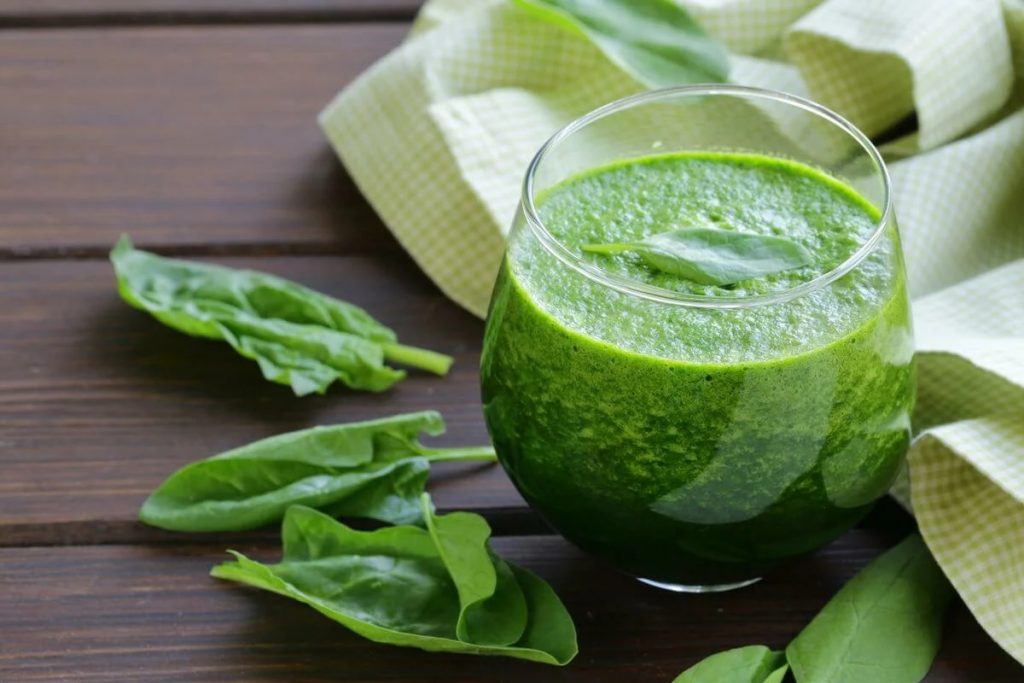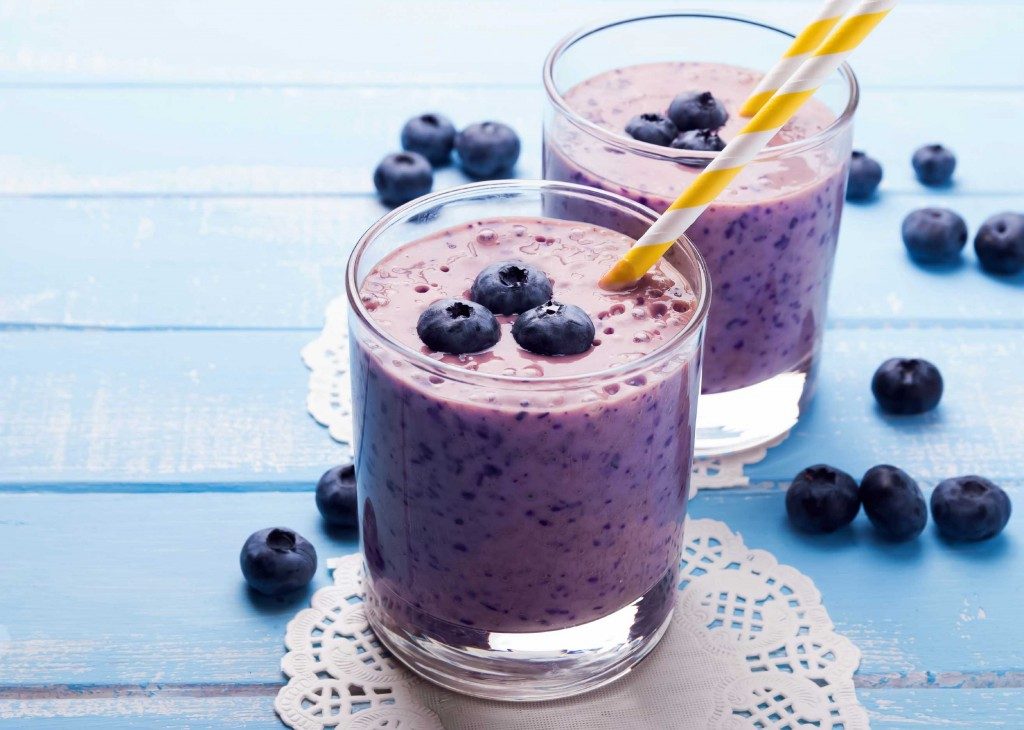
Table of Contents
- 5 Health Benefits of Drinking Smoothies
- Tips to Keep in Mind About Smoothies
- Disadvantages of Smoothies
- Healthy Superfood Smoothie Recipes
- Healthy Smoothies Offer Nutritional Balance
Smoothie businesses are popping up everywhere, it seems, reflecting consumer preferences for healthy and convenient foods. ACCORDING TO THE MARKET RESEARCH COMPANY IBISWORLD, the U.S. smoothie and juice market is now a $3 billion market. The projection is continued growth, and there is a good reason. They are delicious, can deliver a wealth of nutrients, and are ideal at any time of the day. The good news is you can make your own with healthy ingredients that meet your nutritional needs.
5 Health Benefits of Drinking Smoothies
A smoothie is a thick and creamy beverage and made from a variety of ingredients placed in a blender. The ingredients are pureed until you have a smooth concoction. One of the most excellent features of smoothies is that they can contain whatever is desired. Typical ingredients include:
- Fruits
- Vegetables
- Yogurt
- Seeds
- Nuts
- Juice
- Milk or water
- Protein powder
- Spices
The following are five potential health benefits of drinking smoothies.
1. Increases consumption of fruits and vegetables
Eating enough fruits and vegetables is crucial to good health. One to two or three cups a day of each can lower blood pressure, reduce the risk of developing some types of cancers, lower the risk of developing diabetes, and reduce cardiovascular and stroke risk.
2. Increases fiber intake
Fiber helps the digestive system and may help reduce the chances of developing heart disease, diabetes, and colon cancer. Some high fiber foods to add to smoothies include raspberries, blackberries, strawberries, pears, apples, bananas, dark leafy green vegetables, chia seeds, sunflower kernels, ground flaxseed, and almond butter, to name just a few.
3. Can be a meal replacement
If on a weight loss program, smoothies made with healthy ingredients can replace a meal and provide essential nutrients. If you are too busy to eat and cook regular meals and want to avoid fast foods, prepare a container of smoothie ahead of time for quick consumption.
4. Can provide a nutritional balance of fats, protein, carbohydrates, vitamins, and minerals
The key to achieving nutritional balance in a smoothie is to use fruits and vegetables as the primary ingredients, enhanced with healthy fats in seeds, nuts or nut butter, and protein.
5. Helps manage food cravings
One of the benefits of drinking smoothies for breakfast is that they can provide a source of energy and protein. Research studies have found that higher protein intake makes people feel fuller and reduces food cravings later in the day. Proteins are complex molecules that take longer to break down than carbohydrates, so they provide longer-lasting energy.
Protein also helps prevent muscle loss when losing weight on a calorie-restricted diet, making high-protein smoothies a great weight-loss food. Many people add protein powder made from plants, milk, or eggs to their smoothies. High protein ingredients include almonds and other nuts, peanut butter, flax seeds, soy milk, and tofu, to name a few.
Tips to Keep in Mind About Smoothies
The nutritional value and calorie count of smoothies depend on the choices you make for ingredients. For example, using whole milk instead of low-fat milk adds sugar and calories to the smoothie.
- If drinking smoothies for weight loss, be sure to select low sugar, low carbohydrate, and low-fat ingredients
- Measure ingredients carefully so you can calculate an accurate nutritional content
- Balance the sugar in fruits with dark leafy green vegetables, like kale or spinach, which can deliver a healthy dose of fiber, vitamins A and C, calcium, iron, and other nutrients; usually, you would limit fruit to one cup
- Remember that flavored yogurts have higher sugar content than plain, unflavored yogurt that only contains the natural milk sugar lactose
- Healthy homemade smoothies are best made with nutritional options like one-percent milk, unsweetened soy milk or unsweetened almond milk; can also use antioxidant-rich green tea or no-calorie water
- Breakfast smoothies should be high-fiber and high-protein
- Snack smoothies should be low sugar and low calorie
The American Heart Association recommends limiting sugar intake to six teaspoons per day for women and nine teaspoons for men. Plain Greek yogurt is a better choice as a protein source than many protein powders because it does not contain added sugar but has twice the protein of other yogurts.
Disadvantages of Smoothies
Green smoothies are popular, but they also come with a caveat. You really can eat too many leafy green vegetables. Cruciferous vegetables or greens contain high amounts of a compound called thiocyanates. These compounds can interfere with iodine absorption.
This is one of the disadvantages of smoothies. Always be reasonable, and do not go on a “green smoothie” diet. The other main disadvantages are:
- The risk of consuming too much sugar
- Adding smoothies to the diet without cutting back on food, adding calories, and risking weight gain
- Relying too much on smoothies for nutrition and cutting back too much on nutrition in foods
- Depending on how it is made, the smoothie may not be healthy
Also, comparing the smoothie vs eating whole fruit, whole fruit has undisturbed fiber that slows down the body’s conversion of food sugar into blood sugar. When fruit is pureed, some of the fiber is lost. Whole fruit will keep you feeling full longer.
Healthy Superfood Smoothie Recipes
Following are a couple of superfood smoothie recipes to get you started. You can experiment with different ingredients over time and develop your favorite smoothie recipes.
Green Kale Smoothie Recipe

2 cups of chopped kale leaves
3/4 cup of 1-percent milk
1 banana sliced into chunks
¼ quarter cup of pineapple pieces
1/4 cup of plain Greek yogurt
1 tablespoon of peanut butter
2 teaspoons of honey
The directions are easy! Add all the ingredients to a blender and puree. You can add more milk if you prefer a smoothie with a thinner consistency.
Fruit, Vegetable, and Nut Smoothie

1 cup blueberries
1 banana cut into chunks
1 cup chopped spinach
2/3 cup 1-percent milk
1/3 cup plain Greek yogurt
1 tablespoon of honey
1 tablespoon sunflower seeds or ground flax seed
Once again, all you need to do is place all the ingredients in a blender. Then puree until you get the desired consistency.
Healthy Smoothies Offer Nutritional Balance
Healthy smoothies are easy to make, provide essential nutrition, contribute to weight loss, and help prevent the development of chronic health conditions. You can develop your own recipes or find thousands of them online for ideas. The best news is they are delicious!
Sources
- https://www.ibisworld.com/united-states/market-research-reports/juice-smoothie-bars-industry/
- https://www.webmd.com/diet/smoothies-good-for-you#2
- https://www.hsph.harvard.edu/nutritionsource/what-should-you-eat/vegetables-and-fruits/
- https://www.heart.org/en/healthy-living/healthy-eating/eat-smart/sugar/how-much-sugar-is-too-much
- https://www.sciencedirect.com/science/article/abs/pii/S0091305700001970
- https://www.merckmanuals.com/home/disorders-of-nutrition/overview-of-nutrition/carbohydrates,-proteins,-and-fats
- https://universityhealthnews.com/daily/nutrition/secret-to-healthy-smoothies-ingredients-make-the-difference/
